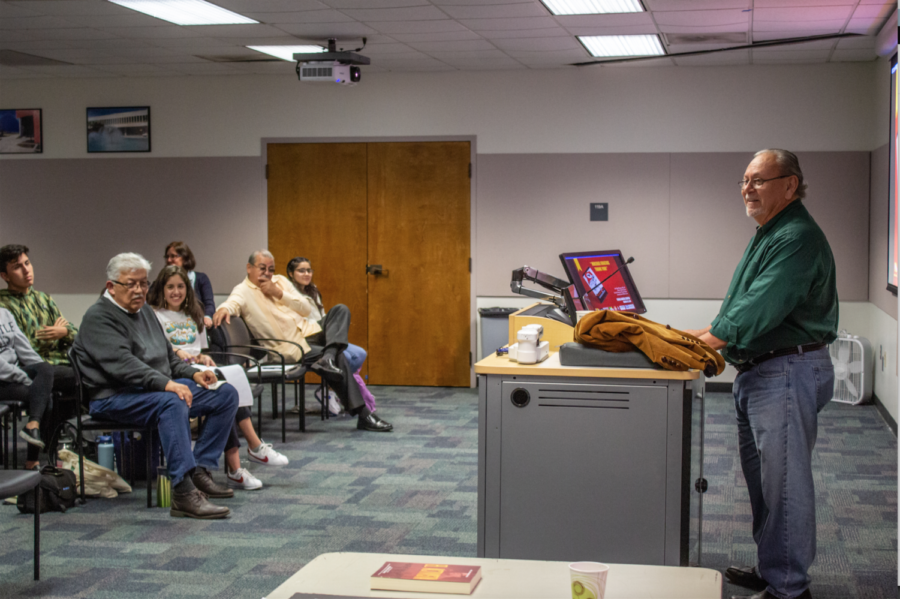As the room filled with students and faculty, tensions began to build before activist Jose Angel Gutierrez even took the podium.
Founding member of the Raza Unida party and Chicano activist Gutierrez spoke to a full room of students and staff at the Anatol Center on Wednesday.
Gutierrez spoke at length about the FBI’s counterintelligence program of the 1960s, a topic he explores further in his recently published book “The Eagle Has Eyes.” In his book and in his lecture, Gutierrez provided insight into how the federal government was actively trying to dismantle civil rights groups at the time through surveillance programs like “CointelPro.”
“We were paranoid because we knew they were watching us,” Gutierrez said. “So we would always turn it around by saying and doing what we wanted them to hear, knowing that they were watching and listening to us.”
According to Gutierrez, a group of anti-war activists broke into an FBI office in Media, Pennsylvania in order to obtain surveillance documents of prominent leaders within the Chicano movement, including César Chávez.
“Every file they opened up was about people engaged in the exercise of their first amendment freedoms, not crime,” Gutierrez said, emphatically. “They even did a table, a spreadsheet if you will, and it turned out that about 8 percent of what the FBI was doing out of the Pennsylvania office, was crime, the [other] 92 percent was war on citizens. Anybody who was dissenting was a target.”
Film Professor Rafael Nieto knew of Gutierrez due to their shared past of organizing and activism.
“Between Raza Unida and the Black Panthers, they were the first ones that had the guts to say, ‘This is our cause, you’re either with us, [or] if you have a different agenda, go pursue that.’”
Nieto also elaborated on his past experiences with government surveillance.
“I found out about what they were doing with me because one of my cousins was an FBI archivist. She found evidence of my surveillance,” Nieto said. “I wasn’t a threat. I was a smart guy, a smart brown guy, and that was a threat.”
Ana Estrada, a freshman majoring in Chicano Studies, left Gutierrez’ lecture feeling inspired.
“It was amazing, it was really eye-opening, just because you don’t get these types of lectures in other classrooms or anywhere else,” Estrada said. “Meeting someone who was there in the ‘60s struggling and fighting to bring awareness to the Chicano community is everything. I thought it was beautiful.”
Estrada heard about the event and thought it would be worth skipping class over.
“Actually my professor came out here and brought the class anyway so I’m off the hook,” Estrada said, laughing.
Gutierrez offered plenty of advice for any potential student organizers in the audience. He warned of “armchair activism” and spoke on the importance of a myriad of issues plaguing the millennial generation.
“You’ve got a lot of good issues right in front of you, that, like any other generation, we faced them too and you gotta deal with it, but some of these are terminal,” Gutierrez said. “I think the word is ‘anthropocene’ and it means an era where the whole world has gotta change.”




